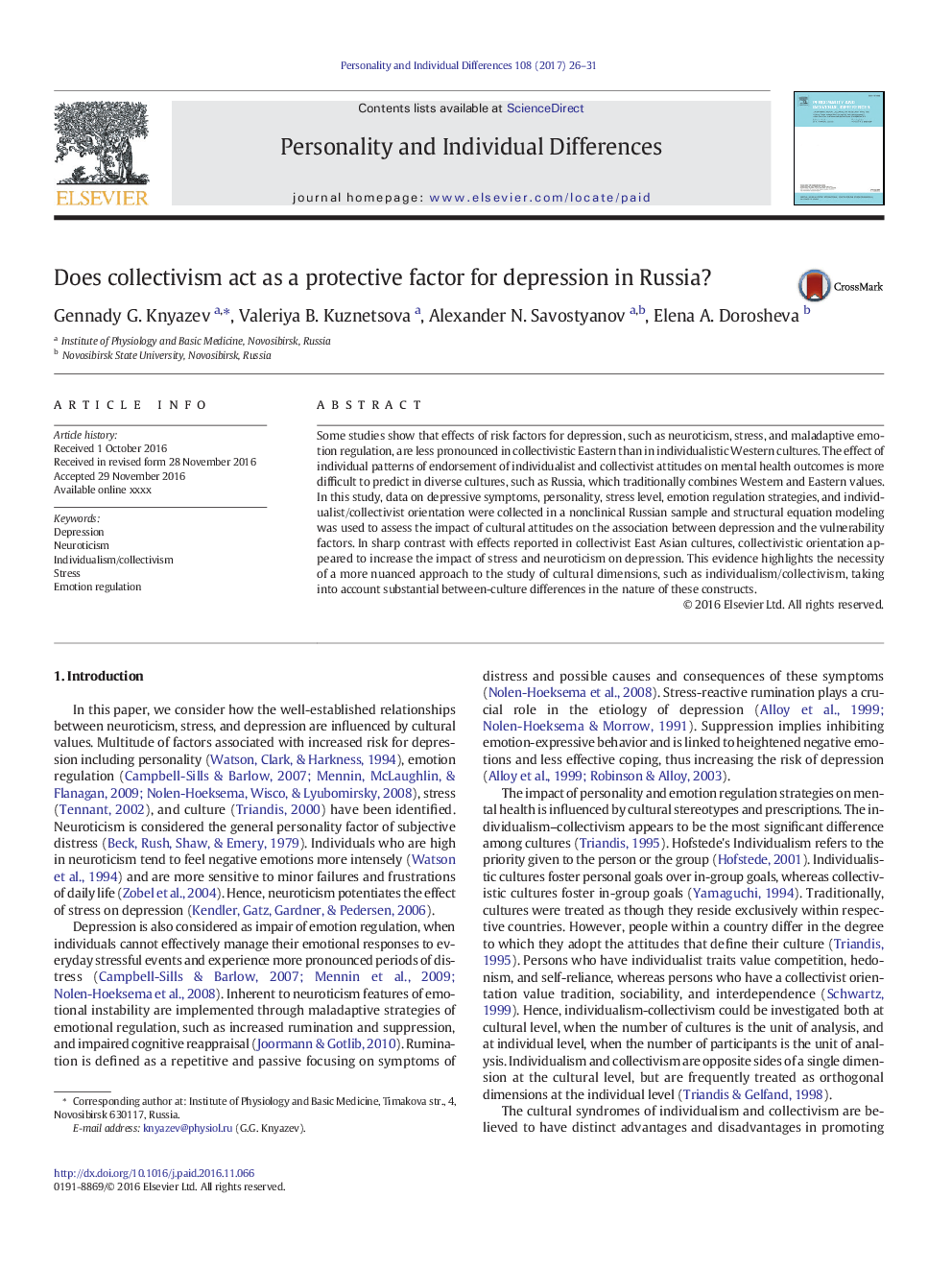ترجمه فارسی عنوان مقاله
آیا کالج گرایی به عنوان عامل محافظتی برای افسردگی در روسیه عمل می کند؟
عنوان انگلیسی
Does collectivism act as a protective factor for depression in Russia?
| کد مقاله | سال انتشار | تعداد صفحات مقاله انگلیسی |
|---|---|---|
| 119715 | 2017 | 6 صفحه PDF |
منبع

Publisher : Elsevier - Science Direct (الزویر - ساینس دایرکت)
Journal : Personality and Individual Differences, Volume 108, 1 April 2017, Pages 26-31
ترجمه کلمات کلیدی
افسردگی، روانپزشکی فردگرایی / جمع گرایی، فشار، مقررات احساسی،
کلمات کلیدی انگلیسی
Depression; Neuroticism; Individualism/collectivism; Stress; Emotion regulation;
ترجمه چکیده
برخی مطالعات نشان می دهد که اثرات عوامل خطر برای افسردگی، مانند روان رنجور، استرس و تنظیم هیجان های ناسازگارانه، در شرق کالم گرایی کمتر از فرهنگ های فردی غرب است. تأثیر الگوهای فردی تأیید نگرش فردگرایانه و کالک گرایی بر پیامدهای سلامت روان در فرهنگهای گوناگون مانند روسیه، که به طور سنتی ارزش های غربی و شرقی را ترکیب می کند، دشوار است. در این مطالعه داده های مربوط به نشانه های افسردگی، شخصیت، سطح استرس، راهبردهای مقابله با احساسات و گرایش فردی / کالک گرایی در یک نمونه غیر روسی در روسیه جمع آوری شده و از مدل سازی معادلات ساختاری برای ارزیابی تأثیر نگرش های فرهنگی بر ارتباط بین افسردگی و عوامل آسیب پذیری در تضاد شدید با اثرات گزارش شده در فرهنگ های کالج گرایانه در شرق آسیا، گرایش کالک گرایی به نظر می رسد تاثیر استرس و روان رنجور در افسردگی را افزایش می دهد. این شواهد، ضرورت یک رویکرد ظریف تر به مطالعه ابعاد فرهنگی مانند فردگرایی / کالکت گرایی را با توجه به تفاوت های متقابل فرهنگی در ماهیت این سازه ها، مورد بررسی قرار می دهد.

